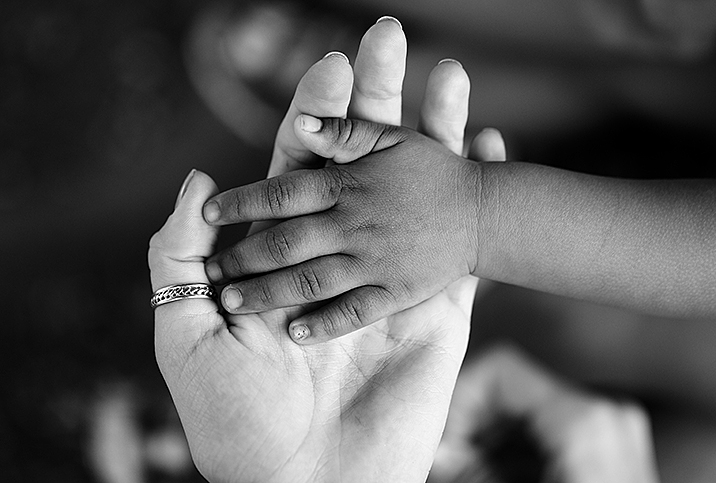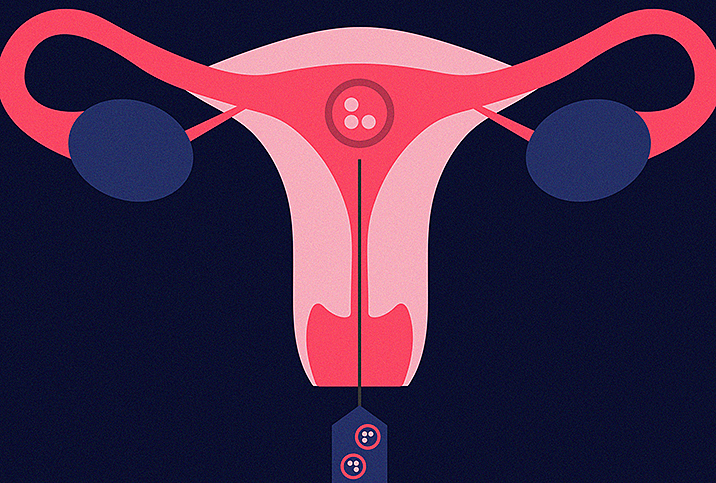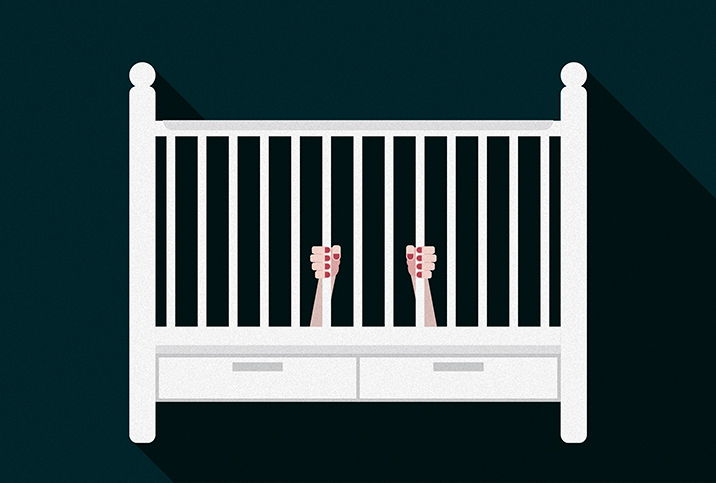Postadoption Depression Is Common Yet Under Discussed

Adoptive parents can suffer the same mood changes that afflict new parents with changing hormones during the first few months after giving birth. Additionally, adoptive parents may also experience depressive symptoms.
Postadoption depression (PAD) is far more common than you may think, and, unfortunately, depression among new adoptive parents often goes underdiagnosed and untreated.
What is postadoption depression?
Postpartum depression, not to be confused with the "baby blues," or rather the hormonal changes following birth that can cause short-term feelings of sadness or weepiness, is a long-term condition and not uncommon. Newly adoptive parents experience many of the same emotional fluctuations as postpartum parents.
Unfortunately, postpartum and postadoption depression carry escalated depressive symptoms. postadoption depression has a similar rate of occurrence as postpartum mood disorders, said Charlotte Blutstein, L.P.C., a psychotherapist and the founder and executive director of Rock Creek Therapy, based in Washington, D.C.
A 2011 study published in the Archives of Women's Mental Health suggested that among newly postpartum parents and adoptive parents, levels of depressive symptoms were not significantly different between the two groups. The study linked increased stress for newly postpartum parents to the likelihood of developing depression, which is why it could also affect adoptive parents, even if the stressors vary between groups.
Symptoms of postpartum and postadoption depression
Postadoption depression and postpartum depression share many similarities, and it's imperative to remember that these conditions are different from the baby blues.
The signs of postpartum depression include:
- Severe mood swings or depressed moods
- Crying jags
- Pulling away from social functions, family and friends
- Insomnia or sleeping too much
- Restlessness
- Severe panic attacks or anxiety
- Suicidal ideation
- Fantasizing about harming the baby or yourself
- Hopelessness
- Overeating or lacking an appetite
- Not caring about activities you used to enjoy
The symptoms of postadoption depression are similar to those of postpartum depression in that they can also include regret over adopting, feeling like a bad parent and worrying about a lack of bonding with the newly adopted child.
"Parents might feel more quick to anger, notice that they're crying a lot more than usual, have a lot less or a lot more of an appetite, feel hopeless, lost, hollow, ashamed or guilty," Blutstein said.
While a birth parent is physically healing from delivery, adoptive parents may be dealing with other stressful elements unique to the adoption process, such as coping with unknowns about the family medical history of their child, judging themselves for how quickly they bond and feeling uncertain if they made the right choice, Blutstein added. It can feel overwhelming for any new adoptive parent.
Behind postadoption depression
Bringing home a new baby is a monumental life transition. All parents can experience symptoms similar to those of postpartum depression after a new life has joined their world due to everything that must change to accommodate this new life, explained Breona O'Brien, L.M.H.C., a therapist in Indiana who works for Cerebral, a telehealth company providing mental health services.
While there is much crossover with the reasons and risk factors for postpartum depression and postadoption depression, adoptive parents face unique challenges, such as attachment with their child, pressures of being the "perfect parent" and comparing themselves to birthing parents, explained Shontel Cargill, L.M.F.T., a regional clinic director in Georgia for Thriveworks, a national network of mental healthcare providers.
In addition, the same reasons birth parents may experience postpartum depression can impact adoptive parents. Practical stressors specific to the adoption process include the uncertainty of timing for when a child will be placed in your home, the legal hoops to jump through and the financial strain of adoption fees, Blutstein explained.
No adoption story is the same, but there is often an underlying element of grief. Blutstein explained families who pursue adoption may do so after a period of trying to have biological children of their own.
"Very often, there is a lot of grief and trauma to work through when a couple decides to stop trying to get pregnant," Blutstein said.
Risks for developing postadoption depression
O'Brien is a former foster parent and foster care counselor who identified the pressing need for families to open their homes and hearts to children who cannot live with their biological families, coupled with the alarming lack of support for parents.
"I am also well aware of the lack of funding, support and general awareness within the general population for this high need," O'Brien said. "As our society as a whole struggles to even recognize the depressive lack of foster support we have, it is no wonder that postadoption depression is underrecognized and undertreated."
Regardless of whether someone is a biological parent, O'Brien said there might be shame in admitting they are experiencing depression.
"This was supposed to be a time filled with joy and that they may have even been waiting years for," O'Brien said.
It makes sense that people may fear judgment or dismissal for this reason, O'Brien said.
While prior mental health history plays a role in how likely someone is to develop depression, other risk factors include unresolved feelings or traumas related to unsuccessful infertility treatments, unknowns about the child's family medical history, financial stress and the dramatic change of having a new child, Blutstein said.
Adoptive parents may feel they should be "superparents" but are falling short as they adjust to life with a new member of the family.
Further, poverty, stress and being a member of a marginalized group can make people more susceptible to developing perinatal or postpartum mood and anxiety disorders, Blutstein added.
Spotting and treating postadoption depression
OB-GYNs typically screen birthing parents for perinatal depression during pregnancy and the postpartum period. Postadoption depression is often underdiagnosed and underrecognized because adoptive parents are often overlooked and not properly screened for symptoms, Cargill said.
"Just as birthing parents need support during [pregnancy] and postpartum, adoptive parents need the same access to quality, responsive care," Cargill added.
Once identified, perinatal mood and anxiety disorders, including postpartum depression and postadoption depression, are often very treatable, Blutstein explained.
"Treatment often includes support groups, individual, couples or group psychotherapy, and medication," Blutstein continued. "Some hospitals, such as UCLA, even have a perinatal intensive outpatient program where parents have a structured treatment multiple days per week for a set number of weeks."
Specific treatment depends on the severity of the symptoms, which varies greatly.
"Some may notice a significant change in how they are feeling by altering just a few things within their daily schedule, while others may need to seek more professional assistance," O'Brien said.
There are also tailored resources for adoptive parents that can help them navigate symptoms of postadoption depression, Cargill added.
"Paying attention to your or your partner's mood is key," Blutstein said. "You know what you usually feel like. If you don't feel like 'you,' it's worth reaching out for support."
One symptom warranting urgent attention is if a parent talks about harming themself or their child. In this case, they need to be evaluated by a doctor immediately, Blutstein concluded.
The bottom line
You don't have to suffer in silence. There is no shame in asking for help. After the paperwork, the official visits and the rest of the adoption process, it's normal to feel overwhelmed when adoption day finally arrives. If those feelings of sadness, guilt or remorse don't go away, contact your doctor.
Do you need a new healthcare professional? Giddy Telehealth takes the hassle out of finding a new doctor. Receive access to hundreds of healthcare providers who cover a variety of specialties. Many offer same-day appointments.


















